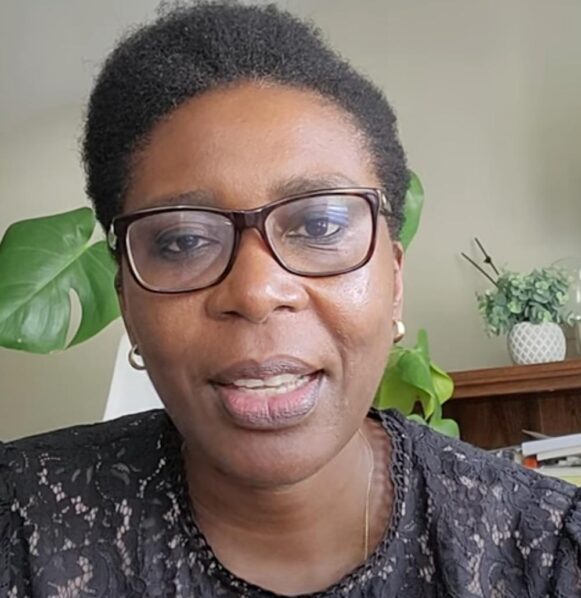
We see Africans making strides to make ends meet all over Europe, America, and the other Western world. These strides make us Africans, because we always put in our best in whatever we do. However, that might not be the case when Africans are in Africa.
I have traveled all over the world as a journalist, and I see Africans in almost every big city, especially in America and their ivory tower of education. The migration of skilled and educated individuals from developing countries to more developed nations, commonly referred to as “brain drain,” has been a longstanding issue, particularly for African countries. This phenomenon has significant implications for the economic and social development of the source countries, as well as for the diaspora communities in their destinations.
In the context of Africans in America, brain drain has been a persistent challenge with far-reaching consequences for both Africa and the United States. It appears that the United States is the major profiteer of Africa’s brain drain due to its liberal scholarship and funding for its graduate program.
During my investigative journalist research, for example, I found an African scholar at Dartmouth College, an Ivy League Liberal Arts College that, according to the university website, has about 78 Black or African American faculty members. I highlight this “diversity” because this African scholar stands out among her peers. That was where I learned about Dr. Sandra Mefoude, who recently won financial aid of USD 2,850.00 for the realisation of the job fair and career project as part of the cohort 2023 economic forums and French-speaking university job fairs.
Mefoude is a highly accomplished lecturer of French at Dartmouth College, where she has made significant contributions to the Department of French and Italian. Holding a Ph.D. in French Studies from the University of Oregon, Mefoude brings a wealth of knowledge and expertise to her role, imparting linguistic proficiency and fostering a deep appreciation for French culture and literature among her students. As an educator, she is renowned for her engaging teaching methods and genuine dedication to her students’ success.
Back to the award. This grant was funded by the Embassy of France in the United States and the Ministry of International Relations and La Francophonie of Quebec. This is one example of an African Scholar in French Studies, a native of Cameroun going above and beyond to win grant so that she can organise a career fair for her French degree students.
As a journalist reporting about this scholar per excellence, I found it beneficial and an excellent idea to use grant and award money to organise career and job fair for students which is what Mefoude did. The funding for this prestigious grant, provided by two esteemed organisations, the Embassy of France in the United States and the Ministry of International Relations and La Francophonie of Quebec, is a recognition of Mefoude’s work and their willingness to invest in her vision underscores the significance and potential impact of her project.
At this point, I would love to compare Mefoude’s chair of the French Language Career Opportunities Forum to that of any university in America or Nigeria. Universities are crucial in building knowledge that translates to employability after graduation. As a citadel of learning, they establish strong connections with industries and employers, collaborating with businesses to offer internships, co-op programs, and industry placements, allowing students to gain real-world experience and develop industry-specific skills.
These connections also provide networking opportunities, which can lead to job offers and career advancement. Universities also focus on the holistic development of students, helping them build confidence, self-awareness, and a sense of purpose. Students develop leadership skills, teamwork abilities, and a well-rounded personality by engaging in extracurricular activities. These personal qualities contribute to their employability and success in the workplace.
The project in which Mefoude used the grant speaks of one of the critical roles of any professor. While this grant not only validates her scholarly contributions but serves as a testament to her unwavering commitment to creating positive change and making a lasting impact on the lives of students and the broader community. Her work exemplifies the power of collaboration, perseverance, and a shared vision for a better future.
By organising such a forum, Mefoude facilitates direct connections between students and potential employers, bridging the gap between theoretical knowledge gained in the classroom and practical applications in the professional world.
Additionally, her Forum provides access to potential employers through the French Language Career Opportunities Forum at Dartmouth College, directly enhancing students’ employability by allowing them to market their skills, showcase their qualifications, and potentially secure job offers or internships. This is critical to Americans’ success and in helping them secure gainful employment after graduation.
Mefoude’s work as a teacher-scholar also promotes cultural understanding. The Forum fosters cultural understanding and appreciation between Americans and the French-speaking world, helping students develop a global perspective and preparing them to work effectively in diverse, multicultural environments, which is increasingly essential in today’s interconnected world.
It is important to stress that her presence, even as a native French speaker, benefits her American students due to its impact on France’s cultural diplomacy, economic ties, academic collaboration, workforce diversity, cultural appreciation, and educational benefits. For example, the French language, literature, and culture have significant global influence. Having individuals with expertise in the French language and culture fosters cultural diplomacy and promotes understanding and dialogue between the United States and French-speaking nations.
Moreover, France is one of the United States’ major trading partners, and French companies have a significant presence in the U.S. Her work has a direct impact on Americans since she trains American scholars to become proficient in French language, literature, and culture so that they can engage in academic exchange programs, joint research projects, and collaborations with French counterparts.
In other words, her scholarly ability is visible in the lives of Americans and in her decision to convene this Forum that opens doors for Americans to a wide range of career opportunities in fields such as international business, diplomacy, education, translation, and cultural exchange. Through her language career and job fair, Mefoude connects students with employers who value French language skills and cultural competencies.
While I feel that Mefoude has not only taught French Studies within the four walls of the college, Africa has also lost a scholar per excellence as she might never set foot in Africa unless it is for an expert service and a high-ranking position. It is evident that Mefoude got her first degree in Cameroun, but America would proudly say that she is “American-trained.”
While I put the word “American-trained” in quotation marks, if something is not done to stop this, African nations will keep investing substantial resources in educating and training their citizens, only to lose them to other countries. I would love to end this story by calling on embassies in Nigeria to offer such awards and grants so that our professors can use the prize to organise similar programs that will benefit Nigerians.
OLAIYA is the News Editor of The Guardian Newspaper and Media Fellow of the African Diaspora Investment Symposium (ADIS)






